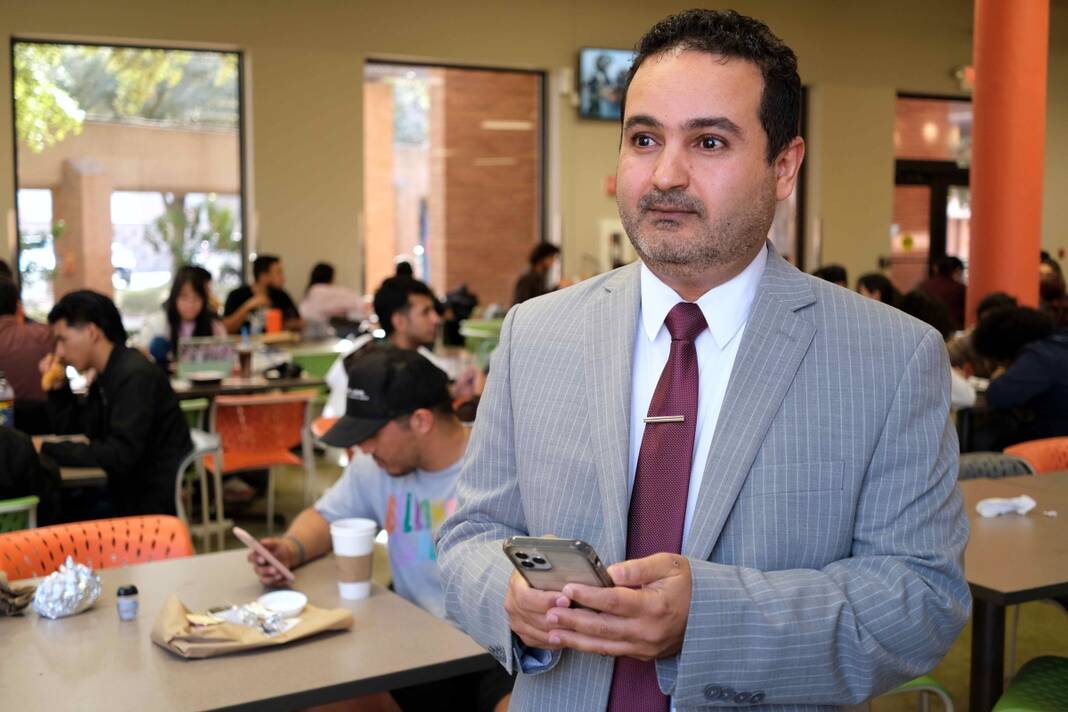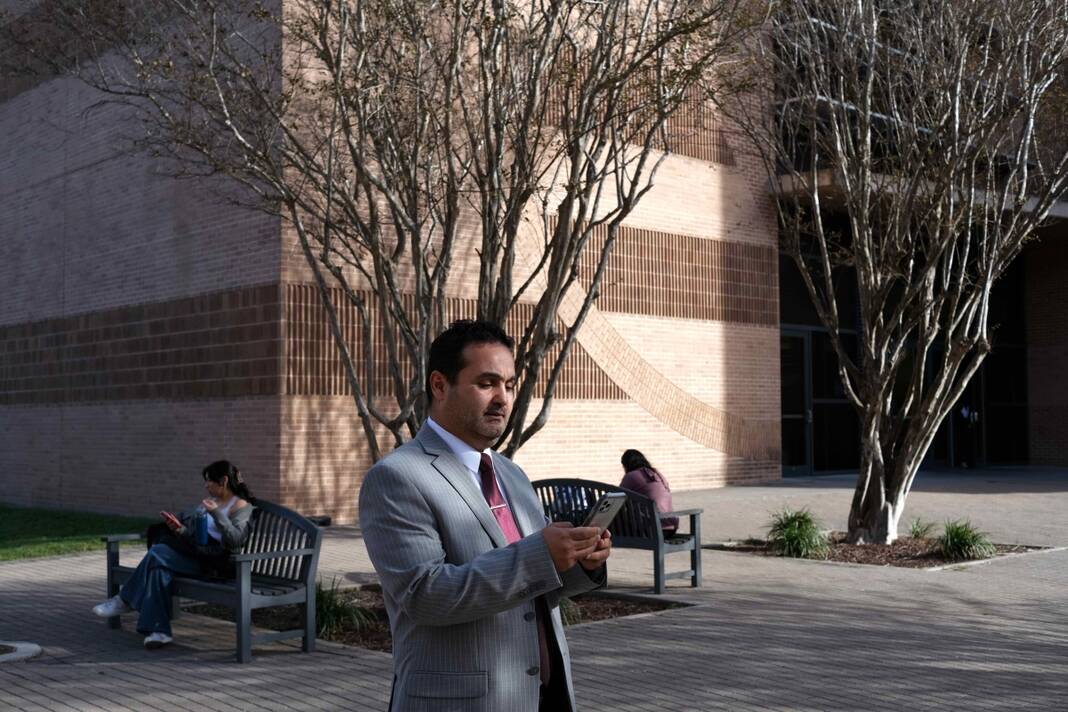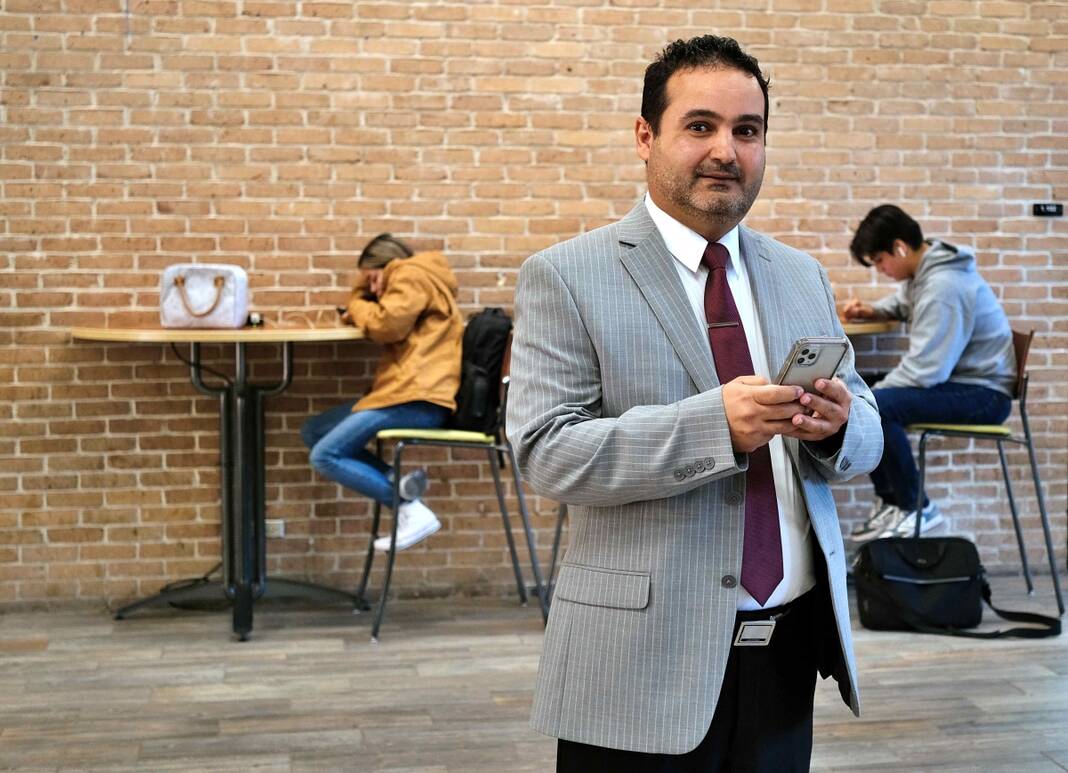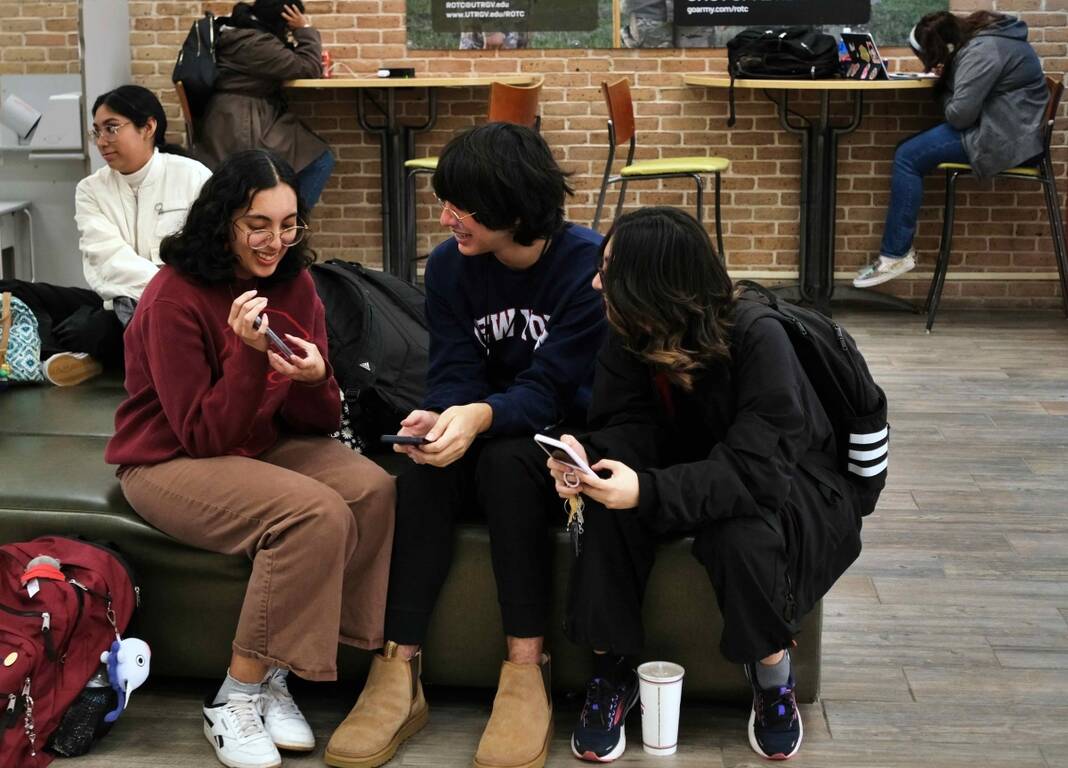|
Only have a minute? Listen instead
Getting your Trinity Audio player ready...
|
Once upon a time, not all that long ago, people’s eyes were not constantly glued to smartphones.
What once would have been construed as abnormal behavior has become completely normalized — and a big problem, a serious addiction in fact, according to Dr. Murad Moqbel, associate professor with the University of Texas Rio Grande Valley Department of Information Systems, part of the Robert C. Vackar College of Business and Entrepreneurship.
He’s been studying the subject since 2015, when he began collecting data from a major health information technology firm in the Midwest for a study on the impact of social media addiction on work and health-related outcomes. Based on surveys of more than 300 of the company’s employees, Moqbel found that social media addiction was detrimental to both.
His research was later published in respected, peer-reviewed journals such as Internet Research, Transactions on Computer-Human Interaction, and Behavior and Information Technology, just to name a few. Other articles are in the pipeline.

“It’s a very fascinating and relevant focus of study,” Moqbel said. “I am studying actually both sides, the dark side of technology and the bright side.”
Addiction, whether it’s to opium or TikTok, falls squarely within the dark-side category. Moqbel, who also heads his department’s Master of Science in Business and Analytics program, said smartphone addiction has a lot in common with addictions to pornography, video games, television, gambling, etc.
“There are so many factors: individuals trying to satisfy their pleasure or hedonic needs, entertainment to fight boredom,” he said. “At the same time, the providers of those apps or platforms like social media, they are also profiting from this. And the more users use those apps, the more (providers) benefit from it financially.”
“Hedonic” historically has referred to behaviors such as excessive drinking, eating, shopping, spending and so on, but today neatly describes the kick users derive from smartphones and social media. Social media apps are considered hedonic, which practical functions like email are termed “instrumental.”

Addicts frequently are unaware they’ve become addicted, and addiction spans age groups, though it’s certainly prevalent among young people, Moqbel said.
“Of course it is more common among young people, since they’re heavier users of this technology compared to older people,” he said.
Based on his findings, Moqbel concludes that this new addiction is detrimental to the well being of individuals, in part, because it crowds out mental activities that are beneficial for health — reading for instance.
“Addiction to those technologies depletes important resources, which include cognitive resources in terms of mindfulness, attention, focus,” he said. “It also depletes emotional resources. It increases that stress level, burnout, exhaustion.”

And it’s a waste of time — literally.
“It also depletes the time resources,” Moqbel said. “People are occupied with this addictive behavior where they neglect other important aspects of their lives, which includes exercise and … taking care of their physical and mental health. Not only that, findings show that addiction to social media is also detrimental to work performance, because it’s very distracting. Research shows that it takes around 23 minutes for an individual or employee to get back to the same flow before the were interrupted.”
He’s working on another study, with a former Ph. D. student, that so far has found that smartphone addiction is also detrimental to task, or routine, performance and also to innovative performance — tasks requiring innovation — because it depletes cognitive and emotional resources, both of which contribute to innovative performance, Moqbel said.
So are our devices making us dumber?
“It definitely kind of replaces a lot of important things that we used to have,” Moqbel said. “For example, that social aspect. If I’m waiting for a bus and I don’t have a phone, I’m more likely to chat with another person at the bus stop, connecting with the world. These devices occupy people’s attention. … You can see people, even couples going on a date, and they are glued to their phones while they’re on a date in a restaurant.”
Dealing with this type of addiction requires a coordinated effort among all stakeholders to overcome and mitigate the negative impacts, he said. That includes employers, parents, platform providers and of course users. Reading, for example, helps mitigate the negative impact of addiction to video games, Moqbel said.
He thinks it’s just a matter of time before the American Psychiatric Association formally recognizes smartphone/social media addiction as a disorder, as the APA already has with internet gaming.
“Right now some of my colleagues are conducting brain neuroscience studies to showcase its impact, and studying it not only from a behavioral perspective but also through neuroscience,” Moqbel said.
Smartphone addiction isn’t going away, but the companies making money from excessive use of their apps and platforms should be playing a major role in mitigating the individual and societal harm, he said.
“Their business model is to increase their use so they can be more profitable,” Moqbel said. “At the same time I think they have a moral obligation to at least bring that awareness (that) people are overusing it, notifications or something.”
Reminders to take a break, in other words, or go for a stroll.
“Maybe something like that might be beneficial,” he said. “They don’t have to lose money. People are still going to use it. But at least bring that awareness for people who overuse it.”
UTRGV’s counseling center has resources to help those concerned about technology addiction or other behavior. Call (956) 665-2574 for the Edinburg campus, (956) 882-3897 for the Brownsville campus, or email [email protected].




